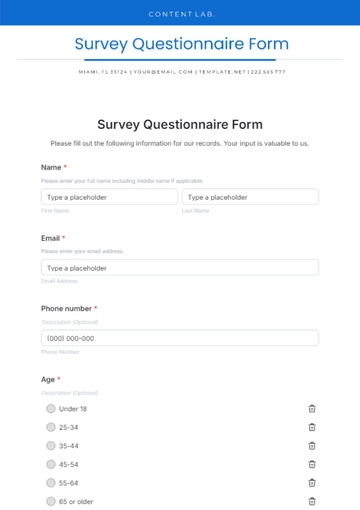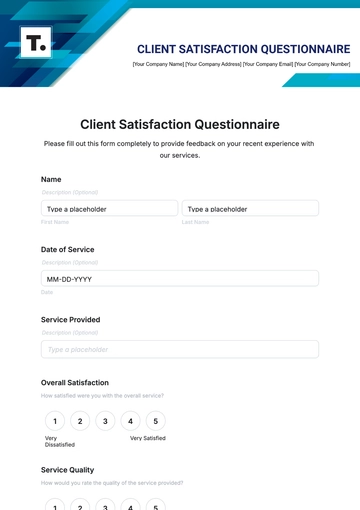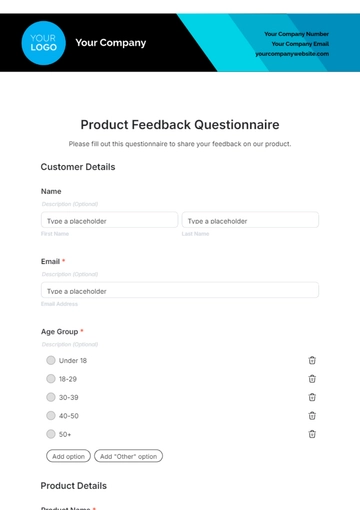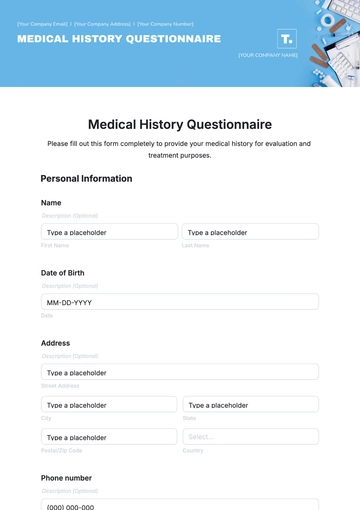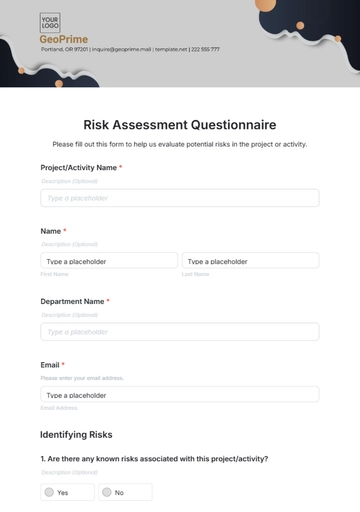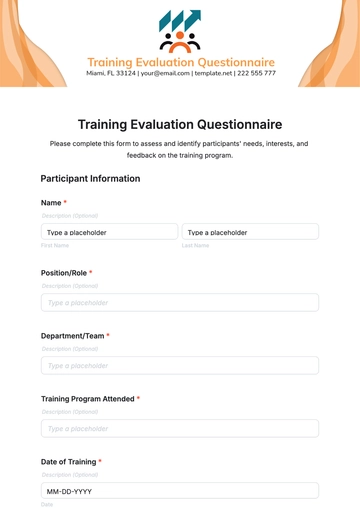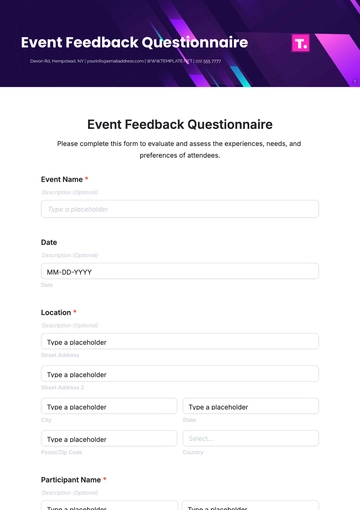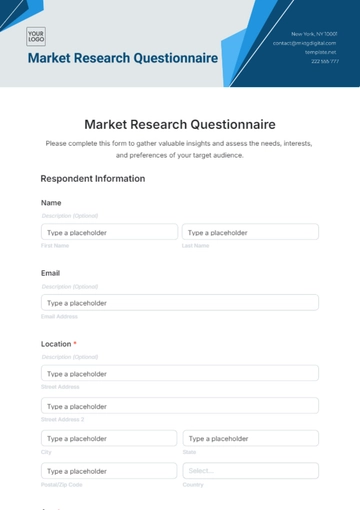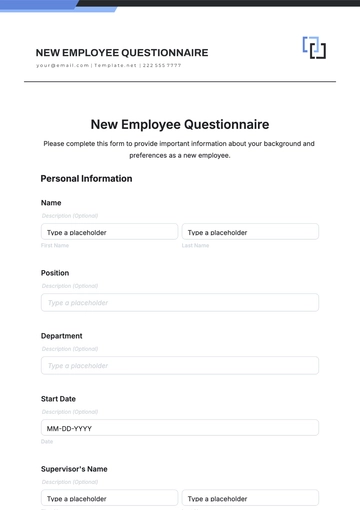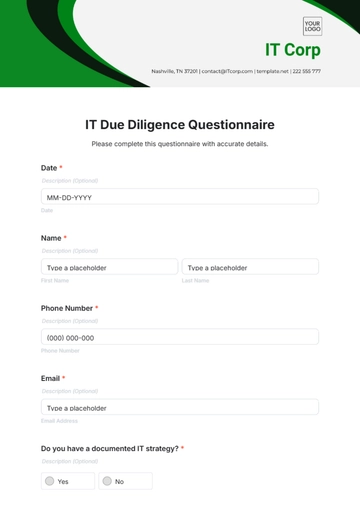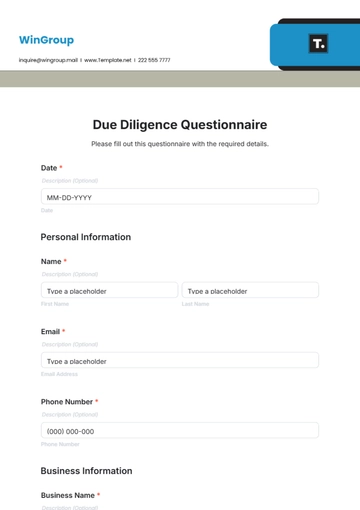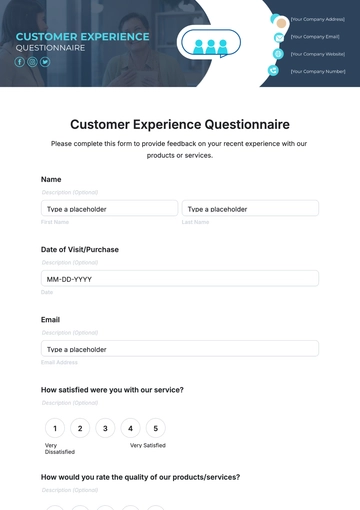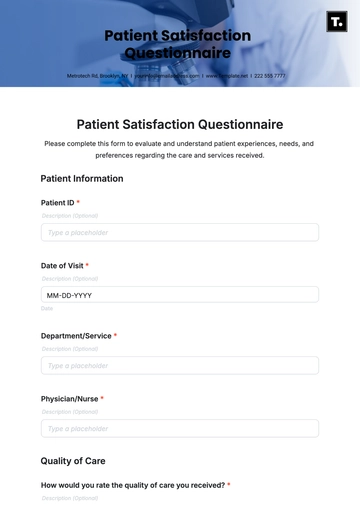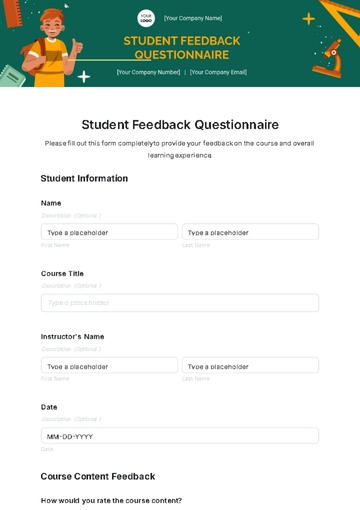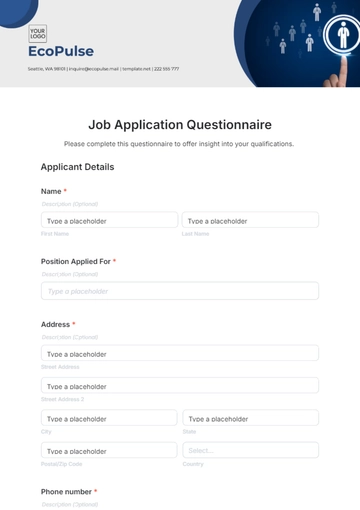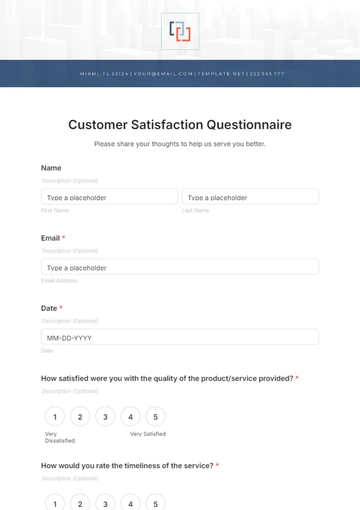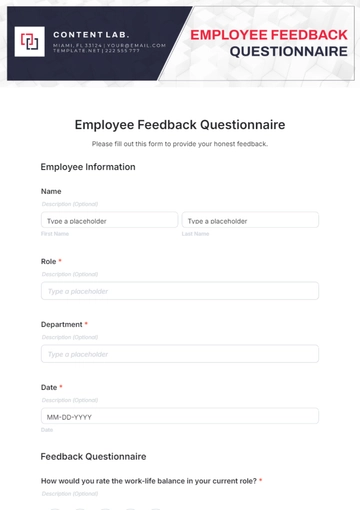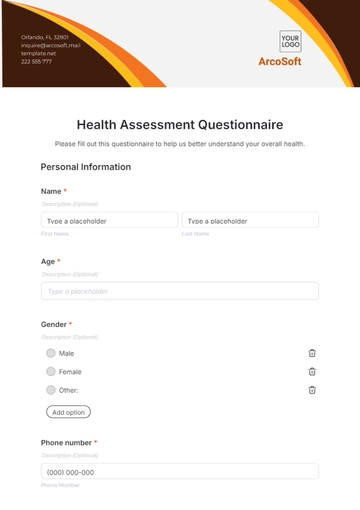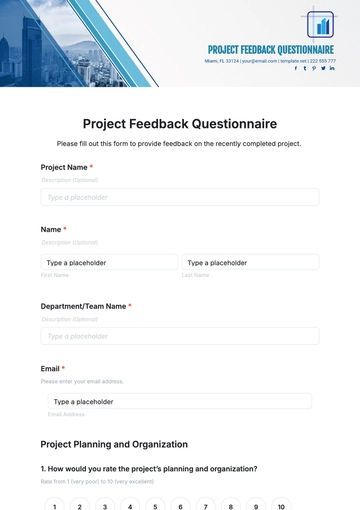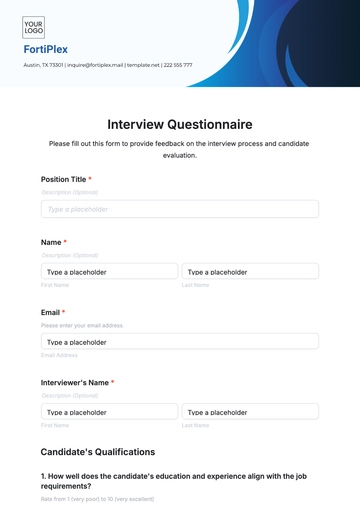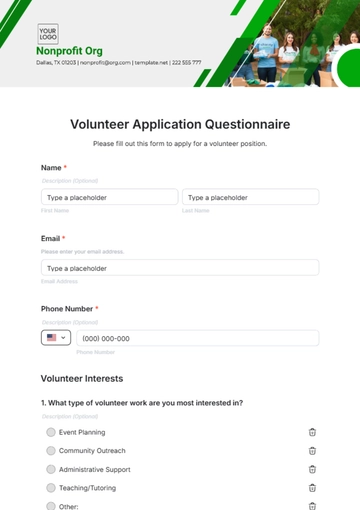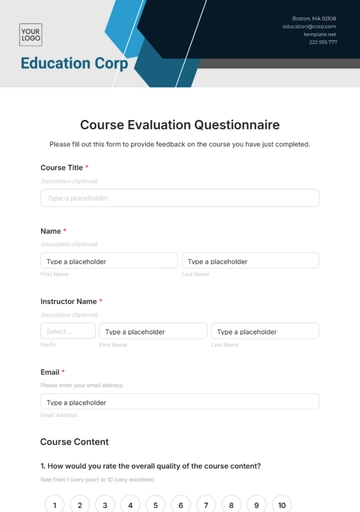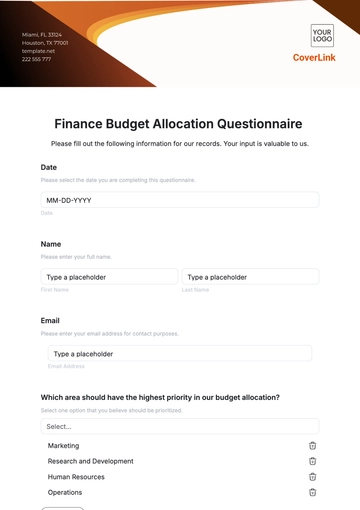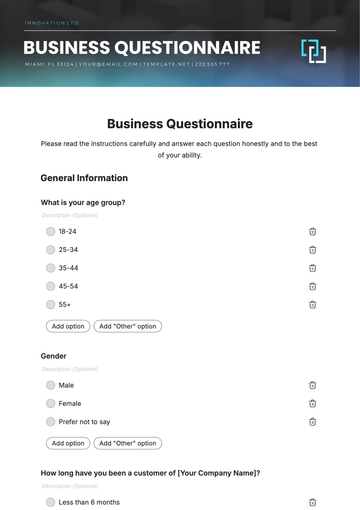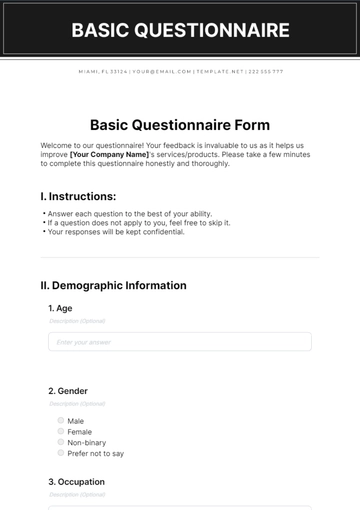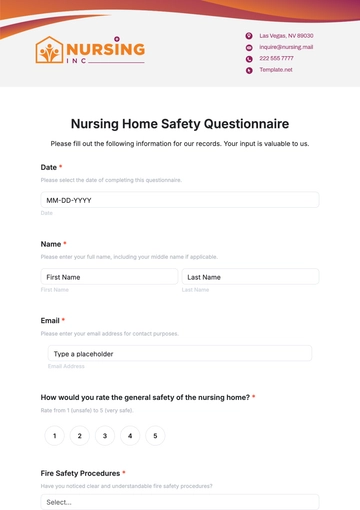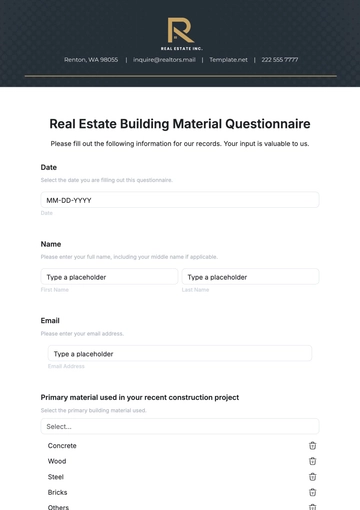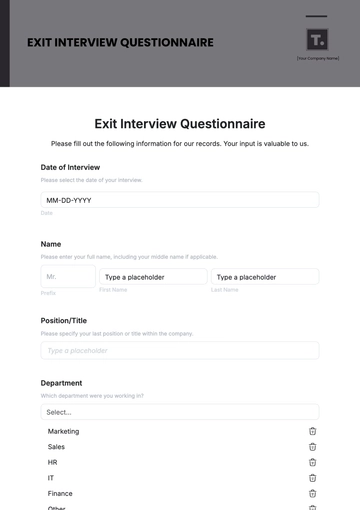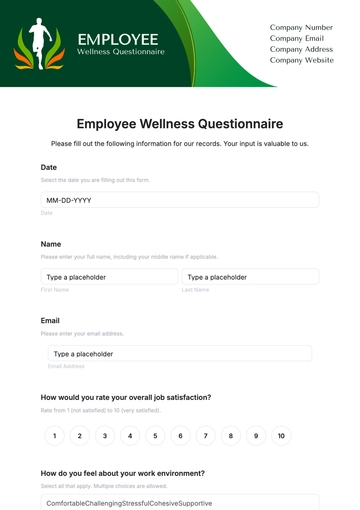Free Nursing Home Dietary Safety Questionnaire
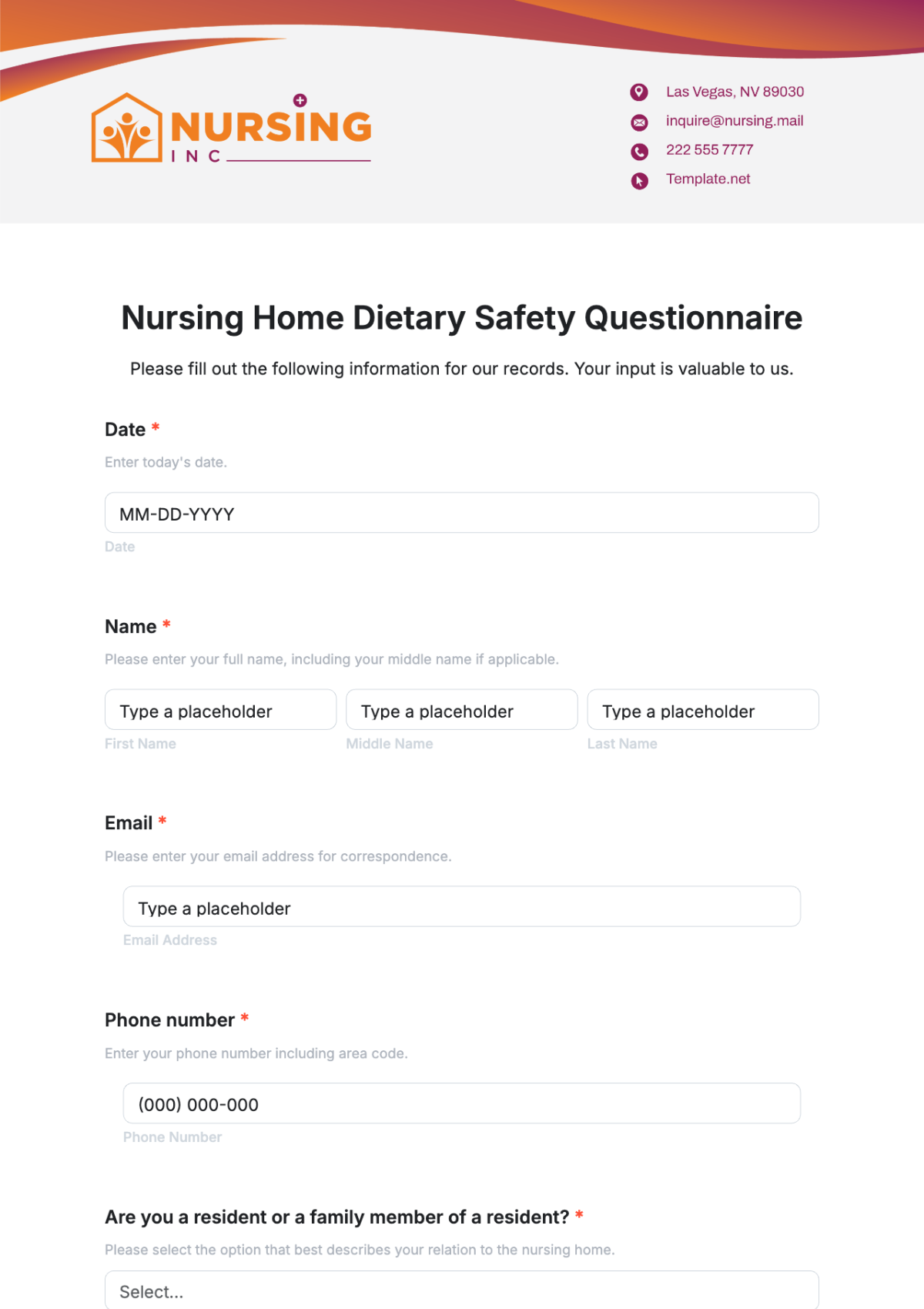
Please fill out the following information for our records. Your input is valuable to us.
Date
Enter today's date.
Name
Please enter your full name, including your middle name if applicable.
Please enter your email address for correspondence.
Phone number
Enter your phone number including area code.
Are you a resident or a family member of a resident?
Please select the option that best describes your relation to the nursing home.
How would you rate the overall dietary safety at our nursing home?
On a scale of 1 to 10, how would you rate the dietary safety?
Are there specific dietary restrictions that we should be aware of?
Please list any dietary restrictions that apply.
Have you observed any unsafe food handling practices?
Select all that apply or mention others in the text box.
Do you have any dietary safety concerns to address?
Please specify any concerns regarding dietary safety that you wish to discuss.
Is the nutritional information communicated effectively?
Please describe how well nutritional information is communicated to residents.
Would you recommend improvements in food safety practices?
Let us know your suggestions for enhancing food safety measures.
Thank You!
Your feedback is important to us and will help improve our services.
- 100% Customizable, free editor
- Access 1 Million+ Templates, photo’s & graphics
- Download or share as a template
- Click and replace photos, graphics, text, backgrounds
- Resize, crop, AI write & more
- Access advanced editor
Discover peace of mind with the Nursing Home Dietary Safety Questionnaire Template from Template.net. This editable and customizable template, powered by our AI Editor Tool, ensures comprehensive assessment of food safety practices. With user-friendly features, effortlessly tailor it to your facility's needs. Elevate your standards, streamline inspections, and prioritize resident well-being with ease.
